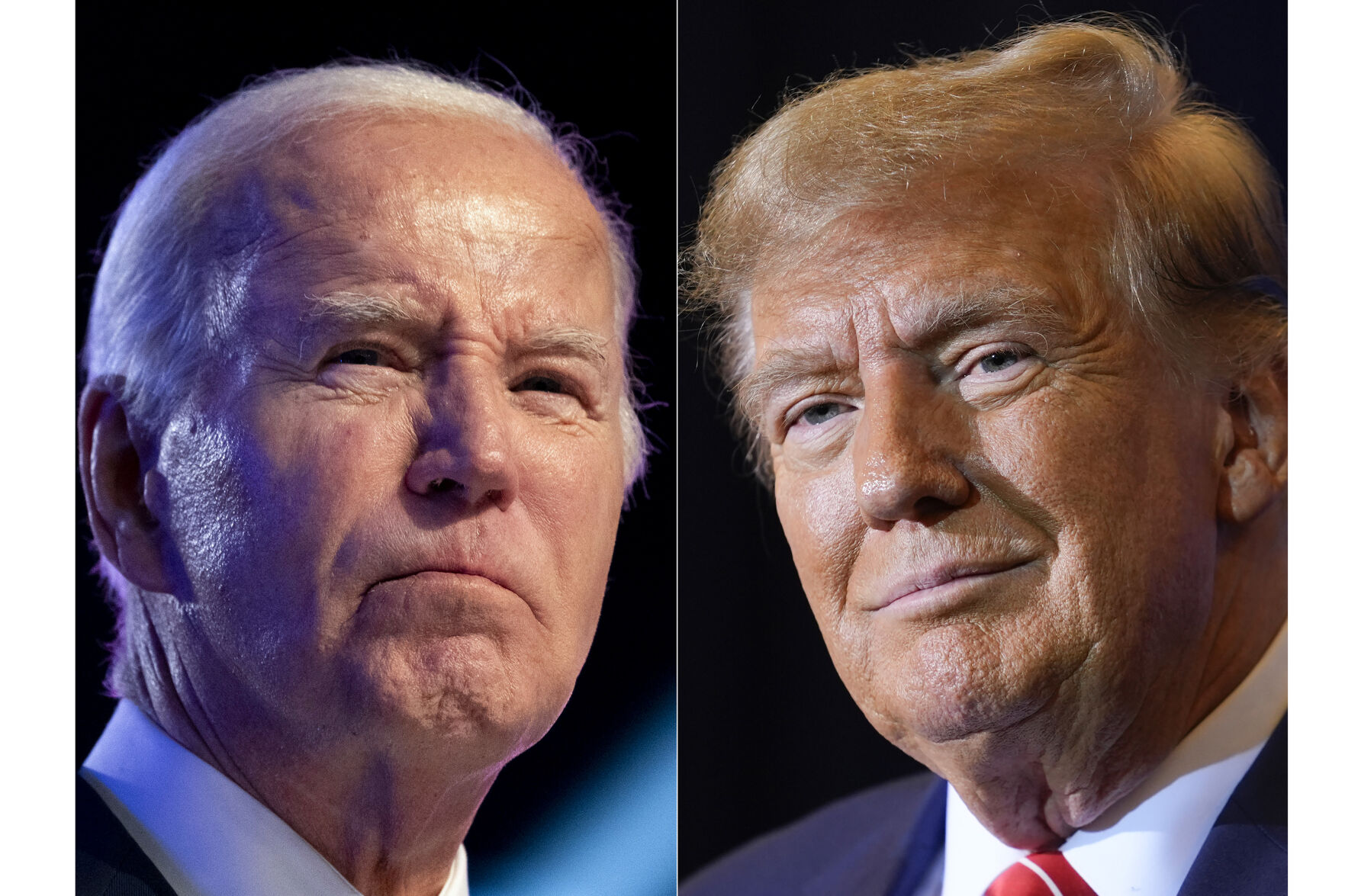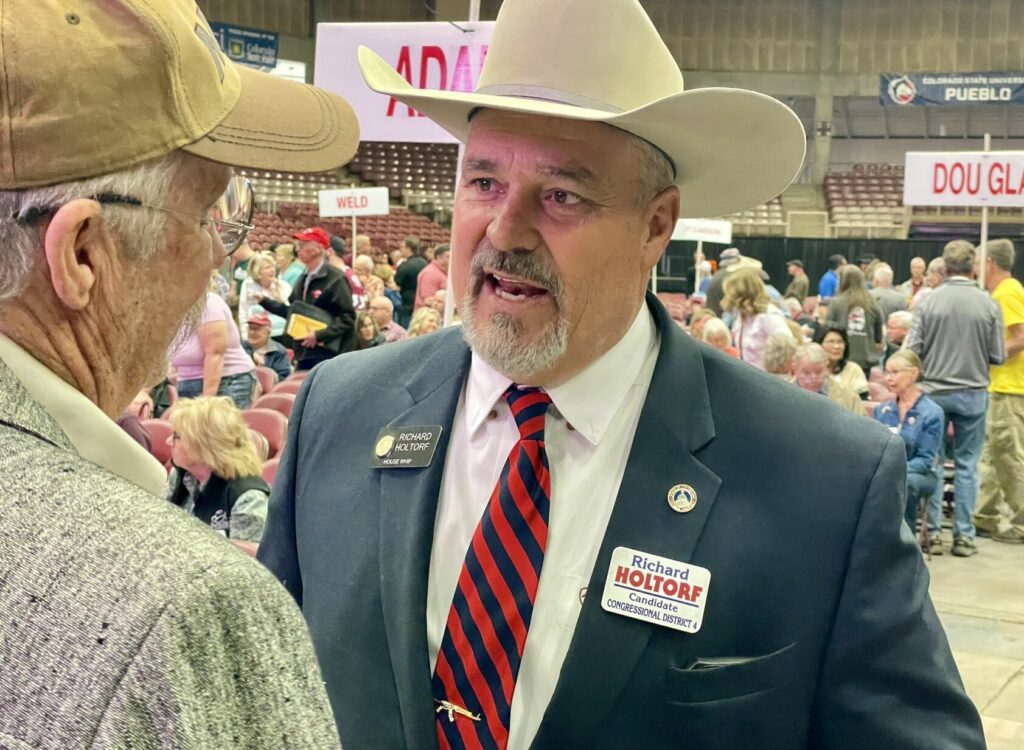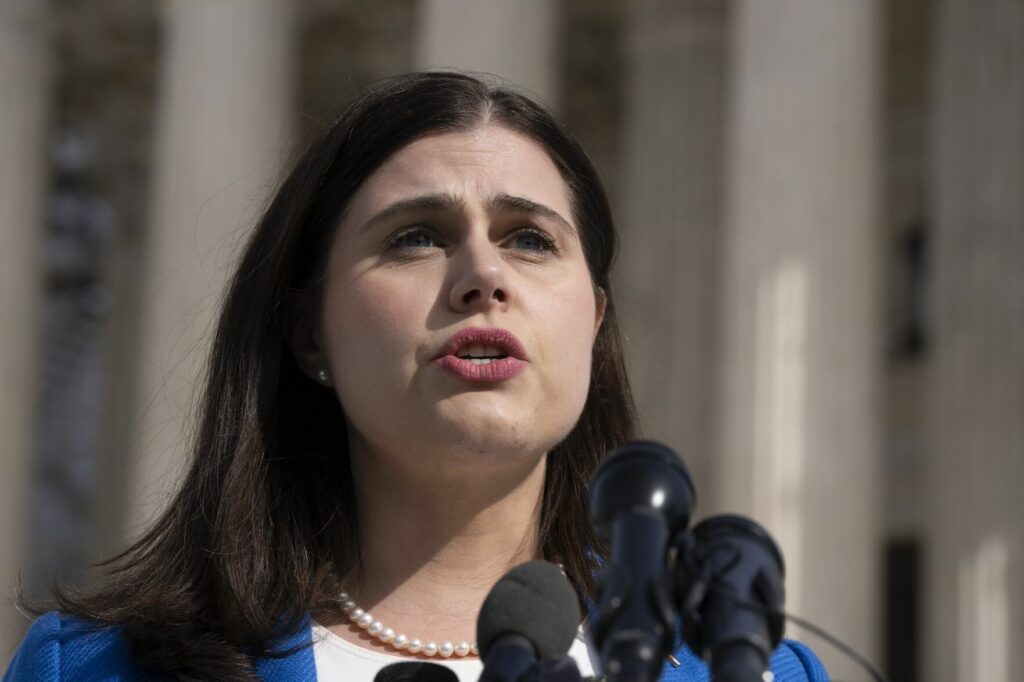Biden, Trump roll toward nominations as Colorado voters return Super Tuesday ballots | TRAIL MIX

In the five decades since both major parties adopted the modern system of nominating candidates for president, Colorado has registered its preferences 13 times, holding four presidential primaries and using caucuses to gauge partisan support for White House hopefuls nine times.
At this writing, Colorado voters are returning ballots for the 2024 presidential primary – the state’s fifth primary – at a steady clip, though there’s little suspense over which two candidates will come out on top when votes are counted after polls close on March 5.
Not since the 2000 primary season – when Republican George W. Bush, the Texas governor, and Democrat Al Gore, the sitting vice president, had sewn up their parties’ respective nominations by the time Colorado voted – have the nominees been as close to set in stone as they are this year.
Both President Joe Biden and former President Donald Trump are the overwhelming frontrunners for the Democratic and Republican nominations, respectively, and both have the chance to accumulate almost enough delegates on March 5 to cement their nomination.
That’s because Colorado’s election falls on Super Tuesday, as it did four years ago, when the state held its first presidential primary since Bush and Gore romped to the nominations, after trading primaries for caucuses over the previous 20 years.
It’s called Super Tuesday because more states vote – and more delegates are awarded – on the day than on any other day in the presidential nominating calendar.
Although the two parties apportion national convention delegates somewhat differently – the Republicans have numerous winner-take-all contests, as opposed to the Democrats, who allocate delegates proportionally, while the GOP sends fewer automatic, unpledged delegates than the Democrats do – both are set to allocate around 35% of their available delegates on the first Tuesday in March. That’s enough to close in on a majority of the delegates bound for this summer’s national conventions, since both Biden and Trump have swept the early states, winning all but a handful of the delegates awarded so far.
In Colorado, as in the other 14 states and one territory voting on Super Tuesday – including delegate-rich Texas and California – the main question on election night will be how well the second-place finishers do in each primary.
On the Republican side, Trump is hoping to vanquish his last remaining challenger, former South Carolina Gov. Nikki Haley, who served as U.N. ambassador under Trump and has vowed to stay in the race until the Republican National Convention in Milwaukee in July.
According to the Associated Press, Trump has accumulated 122 delegates to Haley’s 24 in the first five GOP contests – Iowa, New Hampshire, Nevada, South Carolina and Michigan – with a couple of candidates who have dropped out claiming a handful of delegates.
Trump has run between just under 10 points and more than 40 points ahead of Haley in the early states, with her share of the vote ping-ponging from one week to the next – good enough to encourage Haley to stick with it but decisive enough to lead her major financial backers, the Koch network’s Americans for Prosperity Action organization, to decide to stop spending to support her campaign.
If Haley pulls close to Trump in any of the Super Tuesday states – including Colorado, where she landed for a rally on Feb. 27 in the first appearance by any presidential candidate in the state this cycle – it could keep her lagging campaign afloat, but the deck is stacked against her.
In January, after charging each of the Republican candidates between $20,000 and $40,000 for a spot on the primary ballot, the Colorado GOP broke with tradition – and overrode objections from party officials who protested that the move violated party bylaws – and voted to endorse Trump, declaring that the presidential nominating contest was effectively over before any votes had been cast.
An early hotbed of the “never Trump” movement, Colorado Republicans threw their support behind Texas Sen. Ted Cruz in 2016, shutting out Trump in a delegate selection process that began at precinct caucuses and continued through the state and congressional district assemblies, leading Trump to rain down criticism on the state and declare its system “rigged.”
That same year in November, Colorado voters approved a ballot initiative that re-established presidential primaries – the state held primaries three times, in 1992, 1996 and 2000, before switching back to caucuses as a cost-saving measure -and opened up the primary to unaffiliated voters, who can vote in either the Republican or Democratic primary. Voters also approved a companion proposition that opened up Colorado’s congressional and state-level primary, which is held in June, to unaffiliated voters, something the state GOP is suing to overturn in court.
Colorado Republicans have complained that letting unaffiliated voters – who make up nearly half of the state’s registered voters – cast ballots in GOP primaries unfairly dilutes the preferences of actual Republicans, supposedly producing more moderate nominees. In the only presidential primary carried out under the system, four years ago, though, Trump, then the incumbent president, received a whopping 92% of the vote, prevailing over five little-known challengers.
Still, Haley has an opportunity in Colorado – and several other Super Tuesday states that allow unaffiliated voters to participate in major party primaries – to perform well enough to spell trouble for Trump, if only by demonstrating that the Republicans’ effective incumbent hasn’t secured the support of a substantial portion of the GOP electorate.
While a win is a win – and will bring with it the bulk of available delegates – Haley has been beating Trump among college-educated voters and running roughly even in the suburbs, indicating that Trump could have a problem in November if he can’t win over the defectors. If that pattern holds in Colorado – one of the most highly educated states in the country, with nearly 85% of its population living in urban or suburban areas – Haley could finish stronger than expected in the state, though political observers haven’t settled on how well she’ll have to do to make a splash.
Biden has won the early Democratic contests by overwhelming margins, racking up 206 delegates to just two so far allocated to “uncommitted,” with his two main challengers – Minnesota Rep. Dean Phillips and self-help author Marianne Williamson – failing to break low single digit support or win any delegates to the Democratic National Convention in Chicago in August. Williamson, who suspended her campaign earlier in February after a poor initial showing, announced this week that she is “unsuspending” after edging past Phillips with 3% of the vote in Michigan on Feb. 27.
The Democrats rearranged their primary calendar this year, bumping Iowa and New Hampshire from their traditional, first-in-the-nation caucus and primary statuses, respectively, in favor of leading off with South Carolina, followed by Nevada and Michigan, whose voters elected the pair of “uncommitted” delegates.
The “uncommitted” vote stands out as both a measure of Democrats’ qualms over nominating the 81-year-old for another term and as a protest vote over the Biden administration’s support for Israel’s invasion of Gaza, which has drawn heavy opposition among some Democratic constituencies as civilian casualties soar.
In Michigan, an organized campaign urging Democrats to vote “uncommitted” yielded 13% of the statewide vote and cleared the 15% threshold – enough to earn a delegate – in a couple of congressional districts, according to an AP analysis.
Pundits went nuts, declaring the results a sign of Biden’s weakness with his base, though some cautioned against drawing too many conclusions, since “uncommitted” garnered 11% of the vote in the Michigan primary in 2012, the last time an incumbent Democrat – Barack Obama – was running for reelection, and he went on to win the state and a second term.
Seven Super Tuesday states, including Colorado, list a version of “uncommitted” on their Democratic primary ballots – in Colorado, it’s “noncommitted delegate” – though the only apparent effort to push voters to pick the option so far is in Colorado, where a group of progressive, socialist and pro-Palestinian organizations launched a campaign at the end of February.
Like in Michigan, the option has to receive at least 15% of the vote either in individual congressional districts or statewide to win any delegates, so election watchers will be paying close attention to those results on primary night and in the following days, when the votes will be tallied by congressional district.
Ernest Luning has covered politics for Colorado Politics and its predecessor publication, The Colorado Statesman, since 2009. He’s analyzed the exploits, foibles and history of state campaigns and politicians since 2018 in the weekly Trail Mix column.














